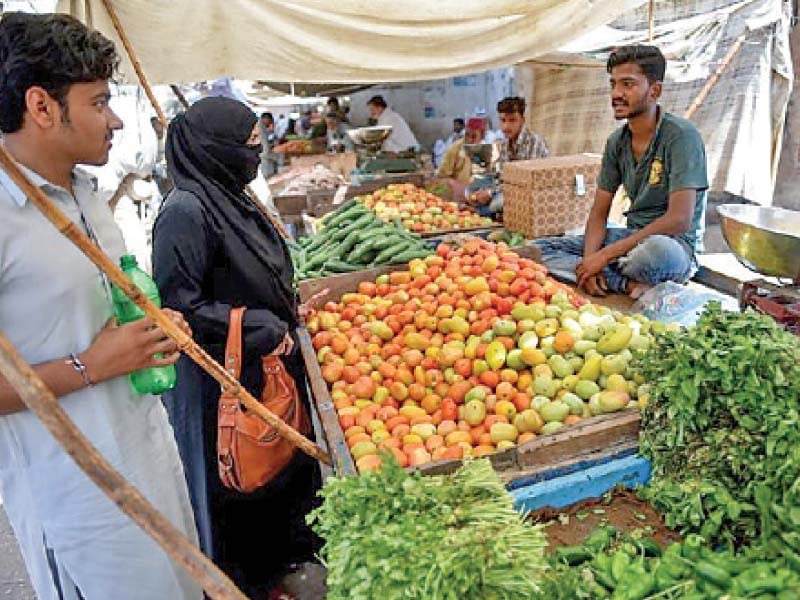
The government has expressed its reservations about the initial projection of single-digit inflation in the next fiscal year, as it slowly starts taking stock of the situation amid soaring consumer prices in the country.
The economic advisory wing of the finance ministry has come up with initial projection of 9.5% inflation in next fiscal year 2022-23, starting July, sources said. However, Minister of State for Finance Dr Ayesha Pasha did not endorse the forecast, terming it unrealistic.
The economic advisory wing gave the 9.5% forecast on the assumption that inflation would be curtailed due to the government’s measures.
However, the wing had in the past too made such assumptions about the impact of interventions, which proved incorrect and inflation remained higher than its monthly forecasts.
“I have instructed the ministry that it should make credible forecasting and there is no need to underreport the inflation reading,” said Pasha while talking to The Express Tribune.
The international inflation outlook is not very good and that should be kept in mind while making next fiscal year’s projections, she added.
Pasha on Thursday interacted with Planning Commission’s officials, who also said that average inflation in the current fiscal year would remain around 11.5% and could go further up in the next fiscal year.
Inflation forecasts are very critical for economic planning purposes, as the number has greater influence on the country’s fiscal, monetary and exchange rate policies.
Under the revised State Bank of Pakistan (SBP) law, the central bank is now bound to follow the federal government’s inflation guidelines.
The Ministry of Finance has not yet convened the maiden meeting of the National Price Monitoring Committee (NPMC) during the PML-N led coalition government’s first month in office. But the Q-block has informally started reviewing the price situation from this week.
In the current week, Federal Minister for Finance Miftah Ismail and Minister of State for Finance Dr Ayesha Pasha held discussions with acting SBP Governor Dr Murtaza Syed, whose institution’s primary objective now is to ensure price stability in the country.
The central bank has a direct role in fuelling or containing inflationary expectations due to its monetary and exchange rate policies that until last month remained loose.
The value of the rupee sank further to Rs191.77 to the dollar on Thursday, hitting a new low, which would have serious implications for prices in the country.
Read Inflation skyrocketed to 13.4%
The Consumer Price Index (CPI) rose to a 25-month high at 13.4% last month while the Sensitive Price Indicator (SPI), which comprises essential goods largely consumed by the low and middle-income groups, surged to 16% at the end of last month.
Prices of wheat flour, sugar, chicken, milk, eggs, cooking oil, potatoes and tomatoes increased further last week, throwing a challenge to the government that had a reputation of good administration.
Although many see the NPMC as a least effective forum to contain inflation, the body does provide an opportunity to review the price situation and sheds light on the performance of district authorities in checking price increases.
Read Govt focused on helping people cope with inflation: PM
However, Daniyal Aziz, former privatisation minister, argued that prices could not be controlled through administrative interventions and the blame should rest with the central bank.
Pasha said that prices in Pakistan were soaring because of international commodity prices, monetary and fiscal expansion and the administrative issues.
The inflation issue is at the top of the government’s agenda and Prime Minister Shehbaz Sharif has given directives to continue relief packages to provide solace to the people, she said.
Shehbaz Sharif held a meeting last week to review the availability of wheat and prices of wheat flour. But the discussions were only limited to a few edible goods.
Inflation rate may peak at around 14% once the government starts increasing prices of petroleum products.
The previous PTI government gave written assurances to the IMF about increasing the petroleum product prices, including charging the levy. Later, former finance minister Shaukat Tarin backed out of the commitment, jeopardising Pakistan’s relations with the IMF.
There is also an urgent need to take the hoarders and profiteers to task, who are increasing prices at will without any economic rationale.
Car assemblers have become holy cows, who are increasing prices, now after every alternative month, but without any fear.
There is also difference between the Planning Commission and the Ministry of Finance’s estimates of economic growth for the current fiscal year.
Published in The Express Tribune, May 13th, 2022.
Like Business on Facebook, follow @TribuneBiz on Twitter to stay informed and join in the conversation.

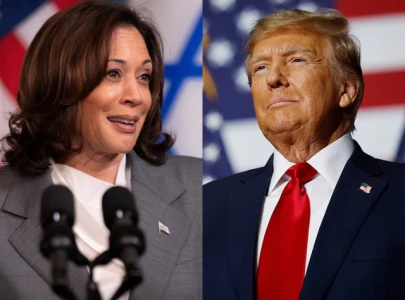







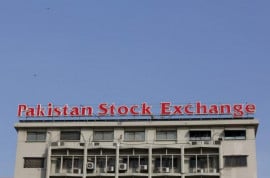


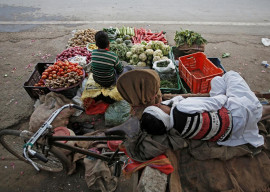

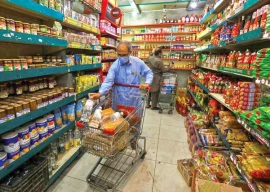
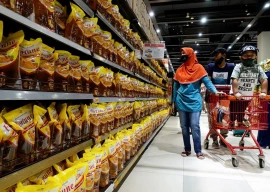




1730706072-0/Copy-of-Untitled-(2)1730706072-0-270x192.webp)
COMMENTS
Comments are moderated and generally will be posted if they are on-topic and not abusive.
For more information, please see our Comments FAQ